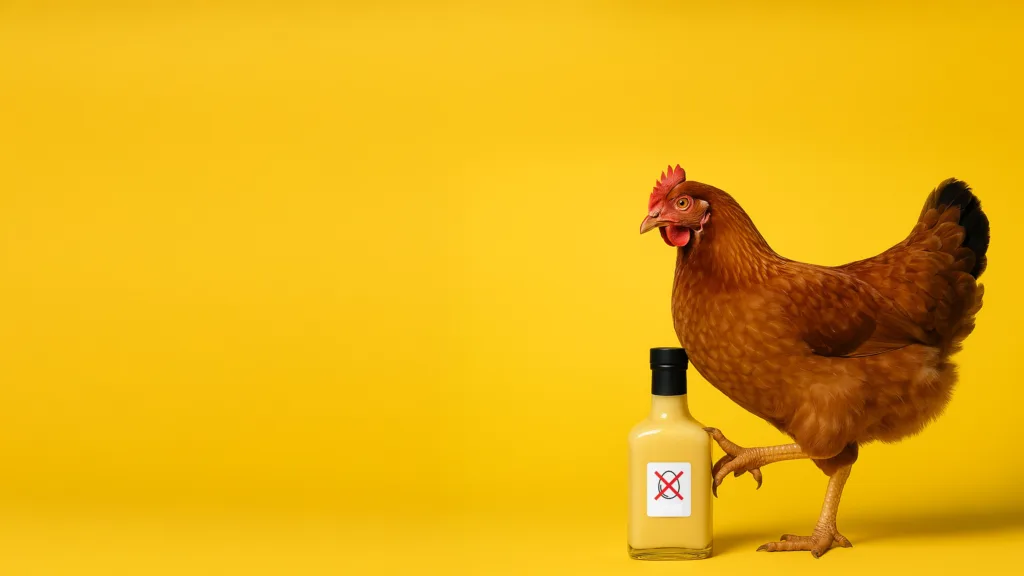
Vegan liqueur
without egg
permissible?
Vegan liqueur
without egg
permissible?
from
Can a vegan drink be advertised as an “alternative to eggnog” and “liqueur without egg” – or does this infringe the protection of the designation of spirits? The Regional Court of Kiel has ruled on this.
A vegan egg liqueur – is that possible?
The starting point of the proceedings was a manufacturer that sells a vegan version in addition to classic eggnog. These products were advertised with descriptions such as “egg-free liqueur”, “alternative to egg liqueur” or “vegan egg-free liqueur that tastes like egg liqueur”. The company wanted to make it clear that this is a plant-based, lactose-free and egg-free product that tastes like traditional eggnog.
However, a trade association saw this as a violation of the European Spirits Regulation. It argued that the term “egg liqueur” was protected and that the terms used were too closely aligned with this legally defined spirit . The manufacturer had already previously issued a cease-and-desist declaration with a penalty clause concerning statements such as “eggnog without eggs” or “vegan eggnog”. As such terms could still be found online, the association demanded a contractual penalty and filed another lawsuit.
EU regulation protects traditional designations for spirits
The relevant Regulation (EU) 2019/787 on the definition, description, presentation and labeling of spirit drinks precisely specifies the conditions under which a drink may bear certain names such as “whisky”, “rum” or “advocaat”. For egg liqueur, for example, it is stipulated that it must contain egg components, in particular egg yolk and egg white.
The main aim of these regulations is to protect consumers from being misled, to ensure fair competition and to safeguard the reputation of traditional products. The regulation prohibits the use of protected designations for non-corresponding products. In addition, an “allusion”, i.e. an advertising design that gives the public the impression that the product belongs to the same category, is not permitted.
The judgment of the Regional Court of Kiel
The Regional Court of Kiel ruled Judgment of 28.10.2025 – Ref. 15 O 28/24 that the names complained of – “liqueur without egg”, “alternative to eggnog” and “vegan liqueur without eggs that tastes like eggnog” – are permissible. Consumers were not misled, as the chosen wording made it clear that the product was not eggnog as defined by the EU regulation.
The decision states verbatim:
The aim of the regulation is therefore in particular to protect the consumer, also and especially from being misled, in addition to protecting the reputation of traditionally produced spirits
According to the court, the average consumer does not understand “liqueur without egg” as a variant of egg liqueur, but as an alternative to it. The reference “without egg” represents a clear distinction and thus prevents the risk of misleading consumers. The term “alternative to eggnog” is also a permissible comparative reference as long as it remains objective and truthful.
In addition, the court denied an impermissible “allusion”. According to the court, there was no direct mental association, which is required by the case law of the European Court of Justice in order to assume an allusion. The mere fact that the taste of a product is reminiscent of eggnog is not sufficient.
The use of a stylized rooster on the label is also unobjectionable. The consumer would not recognize any reference to eggs, but would see the graphic in the context of the overall appearance as part of a humorous, vegan brand identity.
Contractual penalty: Omission also means “cleaning up”
The ruling was less pleasing for the manufacturer on another point. Because it had breached the cease-and-desist declaration it had previously issued, the court ordered it to pay a contractual penalty of EUR 5,000 plus interest.
The decisive factor was that phrases such as “egg liqueur without eggs” or “vegan egg liqueur” could still be found on the internet – for example in online stores or in archived advertising texts. The court clarified that a cease-and-desist declaration does not only mean a passive omission. Rather, the obligated party must actively influence third parties to eliminate existing infringements. Anyone entering into such an obligation must therefore also contact the sales partners and platforms and ensure complete removal.
In this context, the regional court referred to the established case law of the Federal Court of Justice, according to which obligations to cease and desist regularly also include obligations to remove. This means that anyone who is no longer allowed to do something must also ensure that previous infringements do not continue.
Significance for practice
The decision shows that a factual, differentiating reference to protected designations can be legally possible. Anyone who makes it clear that their product does not belong to the traditional category, but offers an alternative to it, may also communicate this.
However, caution is still required: Phrases such as “vegan eggnog” or “eggnog style” are still taboo because they could give the impression that it is a variant of the original. The label design also plays an important role. The decisive factor is the overall impression – i.e. how an average consumer perceives the product.
Companies should also heed the second lesson from the ruling: Anyone who issues a cease-and-desist declaration must implement it in practice. This includes checking all advertising materials, deleting online texts and actively writing to third parties to eliminate infringements. Anyone who fails to do this risks severe contractual penalties – even if the infringements originate from sales partners.
Conclusion
The Regional Court of Kiel is right to allow terms such as “liqueur without egg” or “alternative to egg liqueur”, provided they are used in a clearly descriptive and not misleading way. The protection of the term “eggnog” remains in place, but is not overstretched.
We are happy to
advise you about
Competition law!







